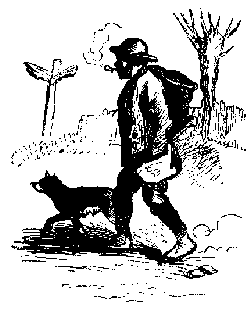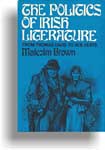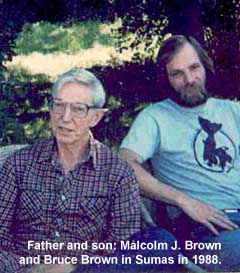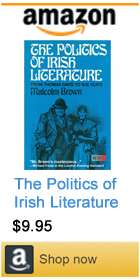Chapter Two
Thomas Davis' Ireland
NINETEETH century Irish colonial discontent focused its animus against the Act of Union of 1800. In form the Union was a novel Irish institution, but in substance it was a wearing and tiresome old story -- more English misrule.
One of the areas of Irish grievance was commercial. English ambition proposed to hold Irish trade under those same famous disabilities that made history in colonial Boston and Philadelphia. Irish merchants resented the degraded economic status allotted to them, and awaited their chance for revenge. There is nobody who does not know the old adage, "England's extremity is Ireland's opportunity," and that opportunity came when the English army bogged down in Virginia and New Jersey after 1776. With Henry Grattan at their head, the Irish Protestants quickly organized their own army, called the Volunteers, a militia nominally for defense against the French flank, but actually for asserting a military argument to free Irish commerce from English interference. Emulating the American example, the Volunteers met in convention at Dungannon in 1782 and pronounced the Dublin Parliament, "Grattan's Parliament," to be independent of Westminster. The bold act of 1782 ushered in a brief season of Irish mercantile prosperity, leaving a symbolic mark upon the landscape in James Gandon's stately Palladian Dublin buildings, the Four Courts, the Custom House, and the remodeled Parliament House.
But a second economic misfortune even more grave was the condition of Irish agriculture. About a hundred years before the Union, William III's armies had won crushing victories over the Irish Catholics at the Boyne and Aughrim. The Williamite wars then closed in 1691 with the Treaty of Limerick, a Carthaginian peace by which a small minority, the Protestant Ascendancy, seized exclusive possession of all the Irish civic and economic rights. With an acquisitive eye fixed upon the remaining Catholic assets, Dublin's Protestant Parliament enacted anti-Catholic laws of the most imaginative brutality, resuscitating all the religious hatreds of the English Reformation as though the Spanish Armada, Guy Fawkes, and the burning of Latimer and Ridley were contemporary episodes. Thus began the infamous century of the Penal Laws, demeaning Irishmen into "slaves that were spat on," in Yeats's cruel taunt.
A long history of conquests, plantations, and confiscations, topped off by the Penal Laws, built an intolerable rack-rent land system, combining the most morbid features of feudal and laissez faire exploitation. In this sector of the Irish economy, the Protestants were no longer the oppressed, but the oppressors. Bishop Berkeley looked at the gentry of Penal Law times and said: "vultures with iron bowels." A contemporary fellow dignitary of the Irish Anglican church, outraged by the same ruthlessness in the countryside, composed a little pamphlet we usually think of as the most scathing satire of all the literature of the world. It was entitled "A Modest Proposal for Preventing the Children of poor People in Ireland, from being a Burden to their Parents or Country."
Agrarian abuses built up a potentially explosive anger among the peasants. And since the Protestant Ascendancy felt keenly the personal dangers of vengeance to which the top-heavy structure exposed them, they welcomed the security provided by a sturdy English connection. On this front they were impelled toward imperial loyalty.
The violent and seemingly insoluble contradiction in the ambitions of the Irish Protestants-alienated from England, yet suffering the indignity of the English connection in order to allay the nightmares of an Irish jacquerie supplies us with one of the essential keys to modem Irish history and literature. The shouting of the Volunteers had hardly died away at Dungannon before the dilemma began to blight the great victory just achieved. For, while the 1782 declaration asserted Irish independence, it also reaffirmed Irish loyalty to England through the crown. England departed from Parliament House, good-bye; but England was still in possession of Dublin Castle and maintained there a disruptive dual govermnent, ultimately fatal.
When Grattan's Parliament turned to confront the agrarian crisis (or its equivalent form, the religious crisis), it found itself virtually paralyzed. It was a fabulously unrepresentative legislature, three-fourths of the members representing pocket or rotten boroughs. The Irish pension list for bribing the members was even larger than the English; and Grattan's historical luster is based in good part on his strange honesty, his refusal to sell the nation for personal advantage. Even so, his conscience was not quite clean, and much of the Dublin parliament's forensic talent was spent in debates between the Grattan and Ponsonby Whigs and the Fitzgibbon and Beresford Tories on the question whether the Protestant Ascendancy could best perpetuate itself by moderating or by solidifying the civil disabilities of the Catholics. The permanent unfinished business of the House was self-reform, and it remained unfinished business at the end...
|
|
Table of Contents
|

|
Astonisher.com is pleased to offer these excerpts from The Politics of Irish Literature by Malcolm Brown...
Praise for
The Politics of Irish Literature |
 |
|
"This brilliant study of the intersection of politics and literature in Ireland amounts to a dazzling portrait gallery. Reading it one feels about one the breath, warmth, and passions of the dead all come alive again."
-- Sean O'Faolain in the Manchester Guardian
"Mr. Brown's masterpiece has made me want to hire a nearby housetop and recite whole chunks to every passerby..."
-- Michael Foote in the London Evening Standard
"The author of the best book on George Moore now gives us what is in all likelihood the best book on the politics of modern Irish literature."
-- Virginia Quarterly Review
|
|

University of Washington Professor Malcolm J. Brown (1910 - 1992) with his son, Bruce Brown, in Sumas, WA, July 1988.
|
Additional reading -- Malcolm Brown's George Moore: A Reconsideration. Also see Bruce Brown's commentary on The History of the Corporation for Malcolm Brown's contribution to that work.
|
|
|






